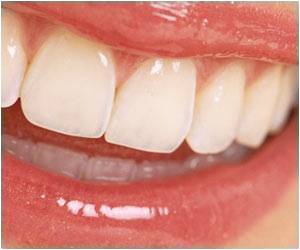History of periodontal disease was associated with a 14 percent higher risk of developing any cancer in postmenopausal women, finds a new study
- Postmenopausal women with gum disease are at higher risk of developing several types of cancer
- The risk of developing cancer was higher even in women who had never smoked
- The risk of gallbladder and esophageal cancers were higher among postmenopausal women with a history of gum disease
Risk of Cancer in Postmenopausal Women with Gum Disease
The research team conducted a study that included 65,869 postmenopausal women to investigate the risk of cancer. The participants had enrolled in the Women’s Health Initiative, an ongoing national prospective study designed to investigate factors that affect disease and death risk in older American women. Most of the participants were non-Hispanic white women, and their average age was 68.The findings showed that women who reported a history of gum disease had a 14 percent increased risk of overall cancer. A total of 7,149 cancers were reported among the study participants. Of the 7,149 cancers, the majority (2,416) were breast cancer. Periodontal disease was associated with total cancer risk among former and current smokers.
"There is increasing evidence that periodontal disease may be linked to an increased cancer risk and this association warrants further investigation," said, Ngozi Nwizu, the paper’s first author and assistant professor of oral and maxillofacial pathology at the University of Texas Health Science Center at Houston.
Esophageal and Gallbladder Cancer Risk
Periodontal disease increased the risk of esophageal cancer. The esophagus is in proximity to the oral cavity, and periodontal pathogens may easily infect the esophageal mucosa and promote cancer risk at that site, said, Wactawski-Wende, dean of UB's School of Public Health and Health Professions and a professor of epidemiology and environmental health.The risk of gallbladder cancer was also high in women with periodontal disease. “Chronic inflammation has also been implicated in gallbladder cancer, but there has been no data on the association between periodontal disease and gallbladder risk. Ours is the first study to report on such an association," said Nwizu.
The findings of the study are significant because esophageal cancer ranks among the most deadly cancers. The etiology of esophageal cancer is not well known, but the chronic inflammation has been implicated.
The findings of the study are important because they offer a window into the disease in a population of Americans that continue to increase as people live longer lives.
Gum disease pathogens could be carried in saliva and dental plaque into the blood circulation to reach other organs and contribute to the development of cancer.
Older adults are more disproportionately affected by gum disease than other age groups. For most types of cancers, the process of cancer development usually occurs over many years. The adverse effects of gum disease are more likely to be seen among postmenopausal women because of their old age.
The findings of the study were published in the journal Cancer Epidemiology, Biomarkers & Prevention.
Gum Disease
Periodontitis is untreated gingivitis that can lead to tooth loss and other health complications. Heart disease, diabetes, pulmonary disease, low-birth weight complications in pregnancy have been linked to periodontal disease. Scientists have found a link between periodontal disease and cancer.Chronic inflammation has been the reason behind the association between certain types of cancers and periodontitis. Previously conducted studies have shown a link between oral cancer, gastric cancer, pancreatic cancer, and esophageal cancer.
Reference:
- Jo L. Freudenheim, Robert J. Genco, Michael J. LaMonte, Amy E. Millen, Kathleen M. Hovey, Xiaodan Mai, Ngozi Nwizu, Christopher A. Andrews, Jean Wactawski-Wende. Periodontal Disease and Breast Cancer: Prospective Cohort Study of Postmenopausal Women. Cancer Epidemiology, Biomarkers & Prevention. (2017) DOI:10.1158/1055-9965.EPI-17-0212
















